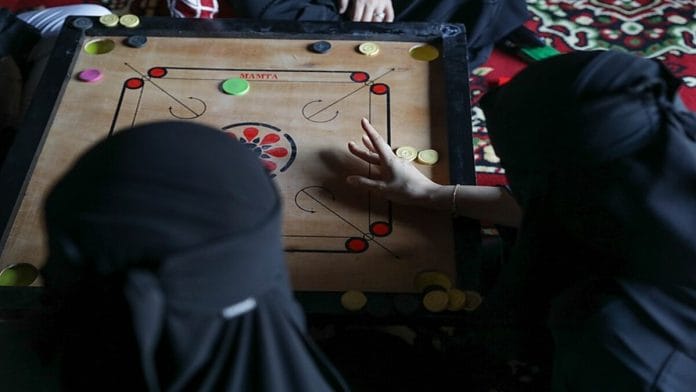Saudi Arabia has been in the news lately, but not for the reasons one might guess — it’s no longer just about the country’s role as the birthplace of Islam or the oil riches. Today, it’s making headlines for something only a few could have imagined: its adoption of a more progressive, modern lifestyle. In 2022, Saudi Arabia allowed women to register for Hajj or Umrah without requiring a mahram or male guardian to accompany them.
Over 4,600 Indian Muslim women registered for Hajj in 2024 under the Lady without Mahram (LWM) category.
What’s particularly noticeable, though, is the contrast in how different countries are reacting to this shift. While Saudi Arabia has lifted the male guardianship requirement and India, too, had brought a similar rule in 2018, Pakistan still requires women to submit written permission from a male guardian, like husband, father or any other close male relative.
An important shift
While women can now perform Hajj solo, the requirement to travel in a group still stands. This seems to align with a modern interpretation of Islam, one that acknowledges the changes in society and technology. The earlier mahram rule was rooted in the idea of protection, a concern that was once very real in a world without the safety nets we have today. Modern technology and improved travel conditions have made it possible for women to travel alone more safely.
However, the emphasis on traveling in groups isn’t just about tradition; it’s about ensuring that women remain safe and supported throughout their journey. In the end, it’s a balance, ensuring women’s safety while recognising that society has evolved and that women are now equipped to navigate the world on their own terms, albeit with the wisdom of community and solidarity.
While many still view such reforms as half measures, or merely the bare minimum in the direction of gender equality and social reform, even they can’t deny that this new arrangement still shows an important shift in Saudi Arabia’s commitment to reform. The country is undeniably in transition. Women can now drive, no longer need a mahram to perform Hajj, and are increasingly participating in public life and work. Additionally, they are not forced to adhere to a modest dress code; instead, they are free to choose their own.
Also, Saudi Arabia is diversifying its economy so that it can reduce its dependence on oil, simultaneously working for a more inclusive future. In fact, one can see this trend reflecting in their foreign policy. The nation is taking more accommodative steps, including even holding talks with groups like the Houthis. A serious, more comprehensive vision for the country’s future — one that embraces modernity while navigating the complexities of tradition — is visible in these changes, which go beyond a simple reimagining of social norms. Even though there is still a long way to go, the change is obvious.
Also read: Indian Muslims must face the truth—Muslim countries don’t care about them
Societal desire for change
With only minor setbacks along the way, it appears that Saudi Arabia’s Vision 2030 plan is moving forward successfully overall. But what strikes me is that, contrary to popular belief, these reforms are not merely a top-down mandate from the monarchy. Public opinion appears to be overwhelmingly in favour of these changes as well. A majority of the Saudi population supports the Vision 2030 reforms, according to a poll conducted by Serco Institute and Kantar. This widespread support suggests that the change is a reflection of a broader societal desire for advancement rather than just a result of a royal decree.
While Saudi Arabia is trying to balance tradition with modernity, there is an ongoing debate within the Muslim world over such reforms. A section of Muslims has started to argue that the reforms in Saudi Arabia do not necessarily reflect the teachings of Islam. Those who once looked up to Saudi Arabia as the standard for Islamic practice, especially in terms of women’s roles, are now questioning the Kingdom’s Islamic values.
This change in viewpoint is significant because any reform or change in Saudi Arabia will have a significant impact on the Muslim world as a whole. Since Islam originated in Saudi Arabia, its social and political decisions have an impact on the larger Islamic world, affecting attitudes and customs everywhere. As a result, these reforms have ramifications that go well beyond Saudi Arabia’s boundaries and can influence the future of the Muslim world.
Amana Begam Ansari is a columnist, writer, and TV news panellist. She runs a weekly YouTube show called ‘India This Week by Amana and Khalid’. She tweets @Amana_Ansari. Views are personal.
(Edited by Aamaan Alam Khan)







The number of women-owned establishments in the accommodation and food service sector in Saudi Arabia reached 59,800 during the year 2024. This figure represents 49.7 percent of the total number of establishments in this vital sector, according to the official data, released by the Small and Medium Enterprises General Authority (Monsha’at).
In 2024, 78,356 Saudi women held senior management positions, while 551,318 women registered businesses in 2023.
Freelancing is also on the rise, with 449,725 Saudi women obtaining freelance work permits in 2023.
Saudi Arabia is home to 9.8 million women, with 36.2% participating in the labor force as of the third quarter of 2024.
The employment-to-population ratio for Saudi women reached 31.3%, reflecting steady progress in workforce inclusion.